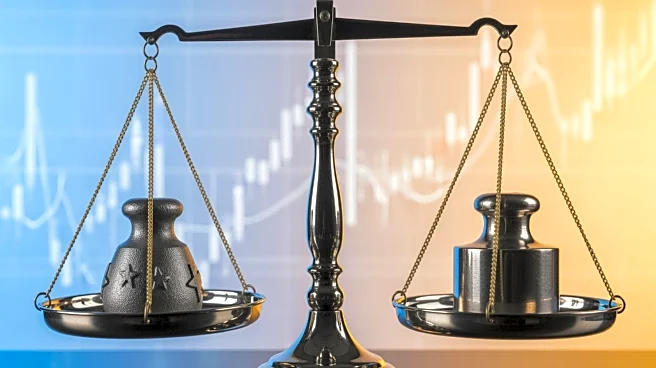Rapid Read • 7 min read
David Fioravanti, a contestant from the first season of 'The Biggest Loser,' has spoken out against claims made in a new Netflix documentary that Jillian Michaels provided caffeine pills to contestants. Fioravanti, who had a contentious relationship with Michaels, stated that while he disagreed with some of her methods, he never witnessed her giving out caffeine pills during his season. He did mention a technique taught by Michaels involving the use of Preparation H to reduce water weight before weigh-ins, which he did not consider dangerous. The documentary has sparked controversy, with Michaels considering legal action against its creators for allegedly false claims.
AD
The allegations against Jillian Michaels in the documentary raise questions about the safety and ethics of weight loss practices on reality television. Fioravanti's denial of the caffeine pill claims challenges the documentary's narrative, potentially impacting its credibility. This situation highlights the complexities of reality TV production and the importance of accurate representation of events. The controversy may influence public perception of the show and its trainers, affecting their reputations and future opportunities in the industry.
Jillian Michaels is reportedly considering suing the documentary's creators, which could lead to legal battles over the accuracy of its claims. The controversy may prompt further scrutiny of 'The Biggest Loser' and similar shows, potentially leading to changes in how they are produced and regulated. As the debate continues, stakeholders in the entertainment industry may need to reassess their practices to ensure ethical standards are maintained.
The documentary's claims and Fioravanti's rebuttal highlight the ongoing debate about the portrayal of reality TV participants and the ethical responsibilities of producers. This situation may encourage broader discussions about the impact of reality television on participants' health and well-being, prompting calls for more transparent and responsible production practices.
AD
More Stories You Might Enjoy












